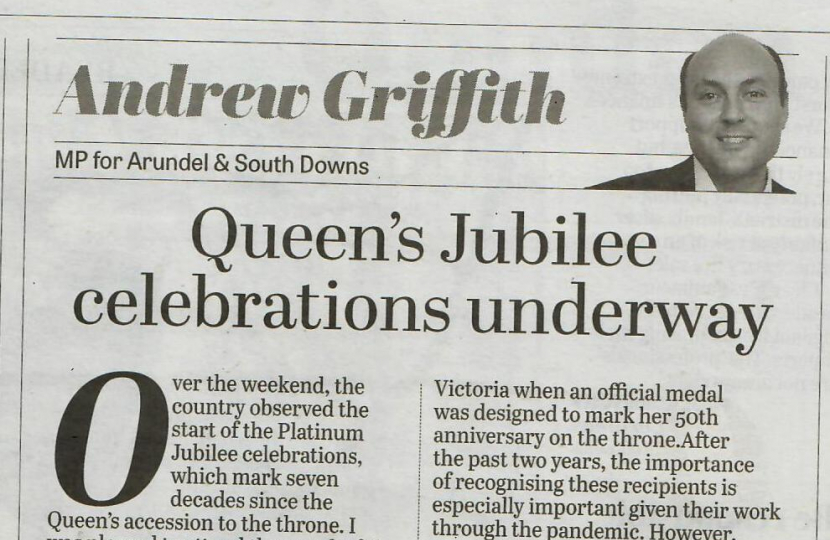
Over the weekend, the country observed the Platinum Jubilee, which marks 7 decades since the Queen’s accession to the throne. I was pleased to attend the wonderful Evensong service to commemorate the occasion at St Mary’s Church in Petworth, and gave a reading from the Book of Proverbs.
Having dedicated her life to public service and as Britain’s longest serving monarch, I warmly welcome the fact that plans are underway to celebrate Her Majesty’s 70th anniversary as sovereign of our great nation.
Over a four-day Bank Holiday weekend in June, there will be an extensive programme of events including the Queen's Birthday Parade (Trooping the Colour), a Service of Thanksgiving at St Paul's Cathedral, and a Platinum Party at Buckingham Palace. Spectacular moments in London and other major cities will be complemented by events in communities across the UK and the Commonwealth, allowing people to join together in celebration.
Furthermore, in keeping with tradition, a Platinum Jubilee medal will be awarded to people who work in public service including representatives of the Armed Forces, the emergency services and the prison services. This tradition stretches back to the reign of Queen Victoria when an official medal was designed to mark her 50th anniversary on the throne.
After the past two years, the importance of recognising these recipients is especially important given their work through the pandemic. However, the need to focus on the pandemic meant resources were diverted, resulting in a significant NHS backlog in elective care such as hip and knee replacements.
That is why I am delighted that the Government is tackling this backlog through the biggest catch-up programme in the NHS’ history. £2 billion will be spent this financial year, double the previous commitment, with an additional £8 billion is to be spent in the following three years, announced as part of the Health and Social Care Levy.
There will also be a new ‘My Planned Care’ service - going live later this month - which will allow people to see waiting times for their local NHS trust. Those due to have surgery will be able to access tailored information for their care.
£2.3 billion will be spent transforming diagnostic services, with at least 100 community diagnostic centres across England benefitting millions of patients. £1.5 billion will also deliver new surgical hubs and increased bed capacity. This will allow the delivery of 9 million more checks, scans and procedures, which equates to 30% more elective activity by 2024-25 than before the pandemic.